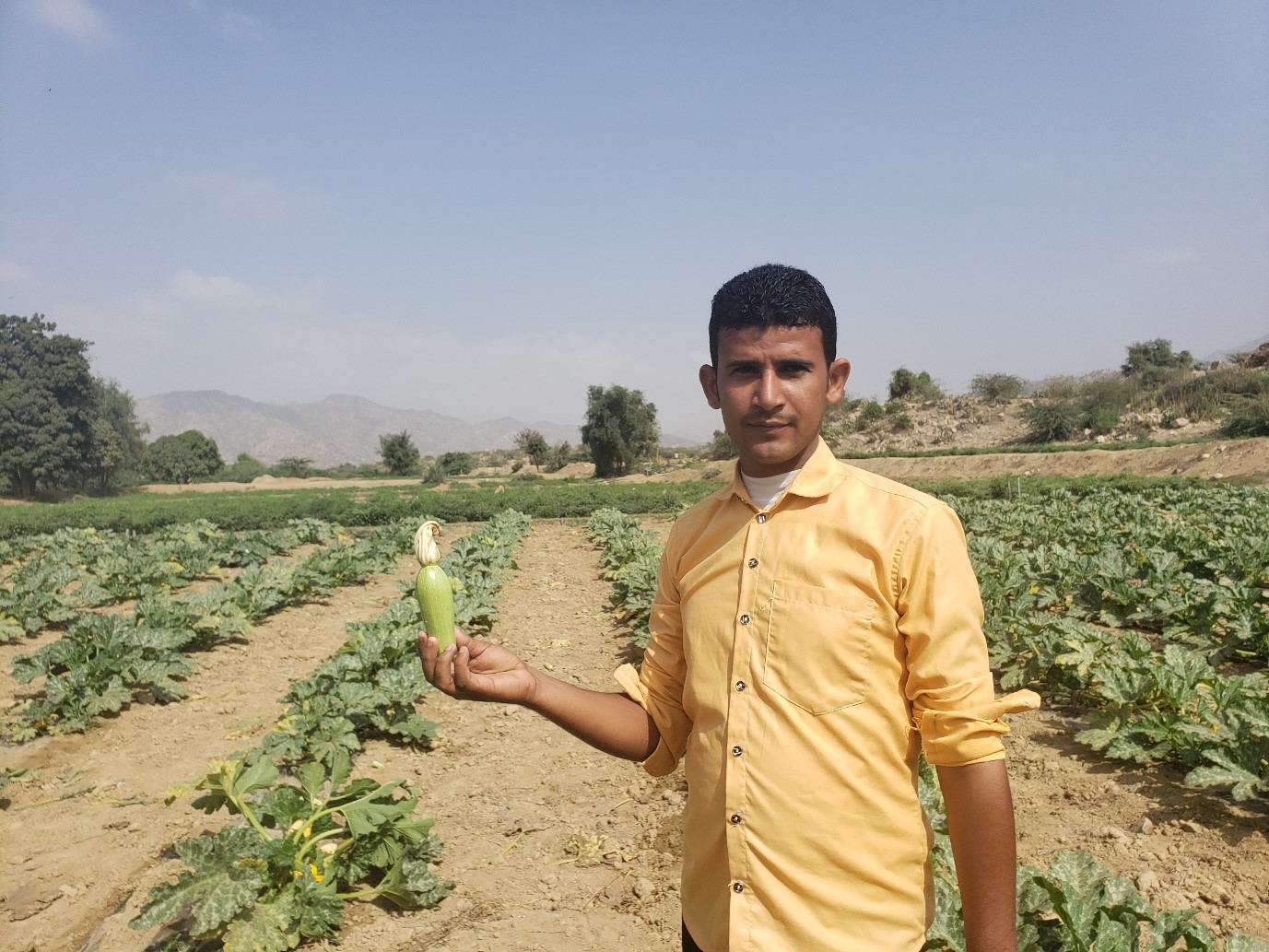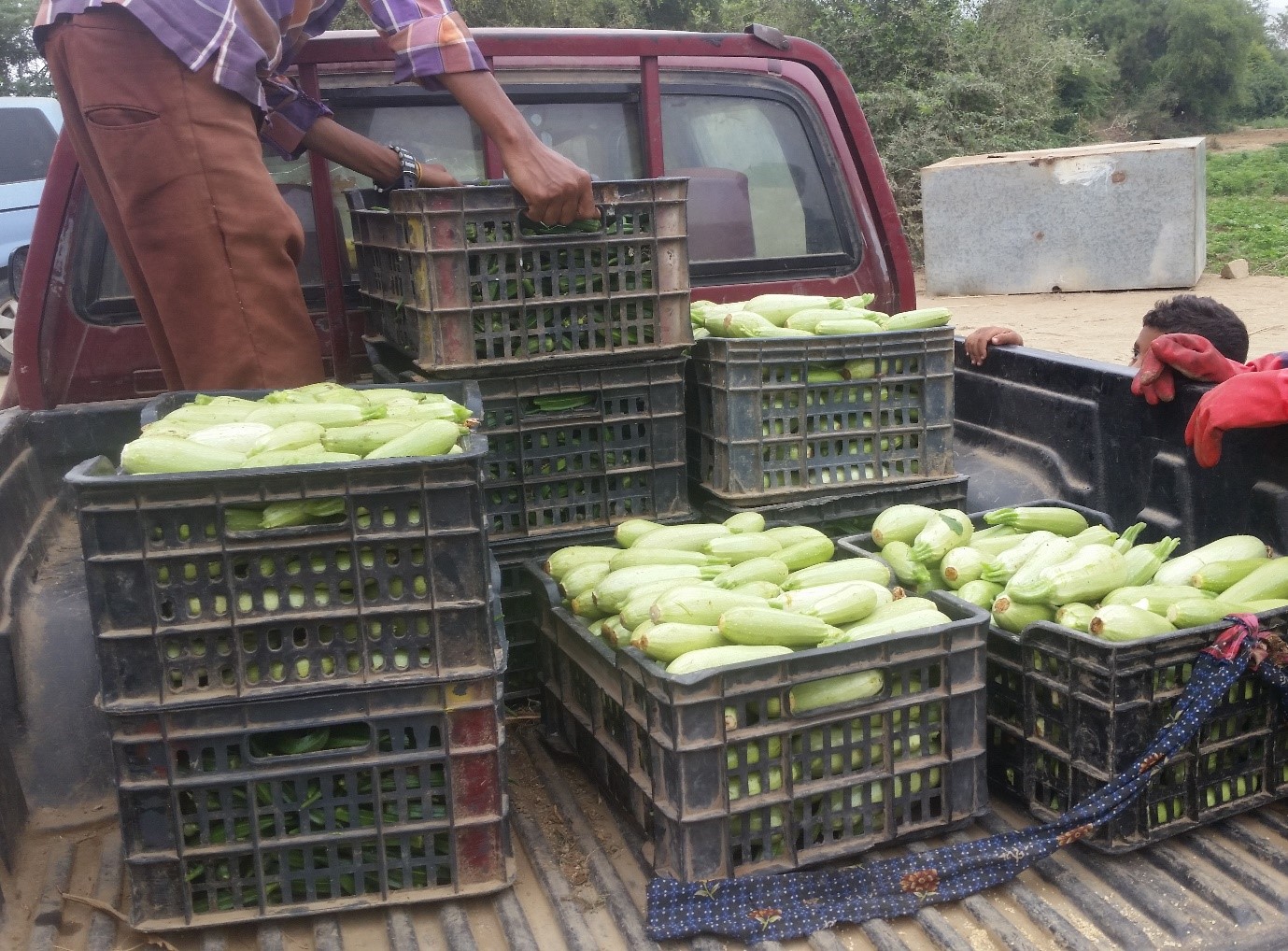With water, sun and soil, a tiny seed can grow into a majestic tree that gives us the gift of food. Every seed contains the potential to help feed communities and save lives. In Yemen, the majority of residents in rural areas rely on agriculture as their main source of income. Tragically, agricultural activities have considerably declined in the country due to insecurity as well as the unavailability of crucial materials and increased costs of fuel and water.
One half of all Yemenis are hungry, and do not know when they will next eat. The resilience of the Yemeni people has eroded over the years. In areas with a high level of food insecurity like Hajjah governorate, vulnerable households resort to negative coping behaviours such as running up debts, selling assets, limiting food portions and skipping meals. According to the UN families often eat nothing more than a bowl of rice or a cup of tea with a piece of bread.
Mohammed Shaban is a 26-year-old father of four children. He works as a farmer in the Aslam district of Hajjah governorate to the north of Yemen. “As food prices kept rising, I tried to expand my farmland to produce more vegetables,” says Mohammed. “Unfortunately, I couldn’t make it with my own basic tools and knowledge. I still remember how many cultivation seasons passed and I didn’t have any seeds or enough water to farm my land.”




